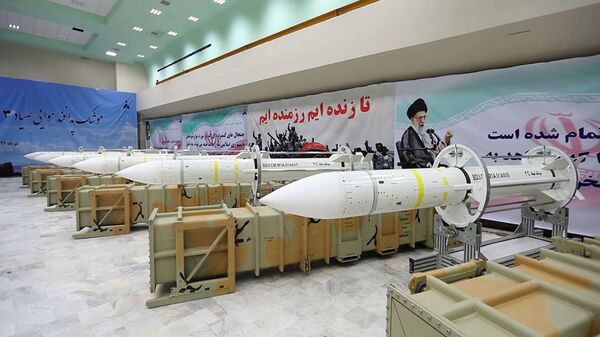"Iran’s missiles and its missiles are absolutely and under no condition negotiable with anyone or any country, period", the statement said.
Foreign Minister Javid Zarif told NBC News earlier, "If the US wants to talk about missiles, it should stop selling weapons, including missiles, to regional states", which prompted speculation in American media that Tehran could agree to missile negotiations at some point, depending on US weapons sales to nations hostile to Iran, such as Saudi Arabia and Israel.
In response to the speculation, Tuesday’s statement from the UN mission said, "Drawing a false conclusion in pursuit of headlines, when what was said in the context was obvious, only leads to a diminution of the standing of the press with the public".
The statement added that Zarif was merely parrying with words to make a point.
US-Iranian tensions have been soaring since May 2018 when US President Donald Trump unilaterally withdrew from the Barack Obama-era 2015 Iran nuclear deal and began reinstating harsh sanctions on the Islamic republic.
A year later, when Tehran began to partially discount its obligations under the accord, tensions took another turn as the US administration blamed the Islamic republic for attacks on oil tankers in the Persian Gulf and stepped up its military presence in the region. Iran has refuted the accusations.
US Department of State spokesperson Morgan Ortagus said on Tuesday that the Trump administration is willing to talk to Iran without preconditions, but Iran must show it is prepared for such talks.
“Our messaging has been that we are willing to talk to the Iranians. The President and the Secretary have said several times that they will talk without preconditions. The Iranians just need to show that they are ready to talk", Ortagus said.
On Sunday, Iranian President Hassan Rouhani said Tehran is ready to hold negotiations with the United States if Washington lifts sanctions and gives up its militaristic and financial bullying.



